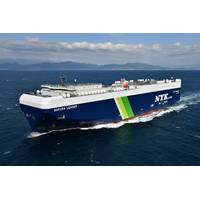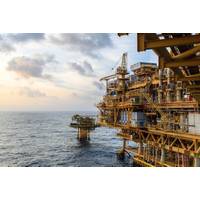Sources say that Congo's cobalt exporters are still waiting for approvals.

Four industry sources said that cobalt producers are still waiting on government approval for the resume of exports. A quota system was introduced in October and it was expected that shipments would restart immediately. The system replaced an export suspension of several months that had disrupted global supply chain and rattled electric car manufacturers, especially in China, the top consumer. Congo, which accounts for 70% of the global cobalt production, temporarily frozen exports in order to reduce supply and increase prices.
New York Times Business News - October 10,
These are the most popular stories from the New York Times' business pages. These stories have not been verified and we cannot vouch their accuracy. Reflection AI, a company that specializes in artificial intelligence (AI), announced that it raised $2 billion of new funding in a round which included Nvidia on Thursday. Reflection AI is valued at $8 billion including the new funding, which is significantly higher than its March valuation of $545 million. Orsted, a Danish developer of renewable energy, announced on Thursday it would eliminate around 2,000 jobs or 25% of its workforce over the next two-year period.
Russell: Trump's tariffs on copper won't boost US production, but will increase costs
The proposed 50% tariff on imported copper may be the most embarrassing own goal in the ongoing trade war between the United States and the rest of world. Trump announced Wednesday that the tariff would take effect on August 1. Trump's statement was quite definitive, but there are still many questions. For example, what products would be included in the definition? And, is there a possibility of exemptions or reduced rates for major US suppliers, like Chile and Canada? Even if concessions are made prior…
Russell: Trump's tariffs on copper won't boost US production, but will increase costs
The proposed 50% tariff on imported copper may be the most embarrassing own goal in the ongoing trade war between the United States and the rest of world. Trump announced Wednesday that the tariff would take effect on August 1. Trump's statement was quite definitive, but there are still many questions. For example, what products would be included in a definition of copper? And, is there any scope for exemptions, or for lower rates, for major US suppliers like Chile and Canada? Even if concessions are made…
Siemens CFO: Political uncertainties are affecting customer decisions
Ralf Thomas, chief financial officer at Siemens, said that customers are hesitant to buy Siemens products due to the political uncertainty. However, he doesn't expect this situation to continue. Thomas stated that companies are delaying investment decisions because they are worried about tariffs, and whether ESG (environmental, social, and governance) risks will still be important after President Donald Trump's attacks. He added: "We are seeing this in many places at the moment. Thomas added that Siemens still believed the long-term demand was "ok" for its products…
Meet the World's First Digital Smart Ship, the Japanese Built LNG-Fueled PCTC Sakura Leader

The run up to 2050 and dramatic reductions in emissions from ships will, by most expert’s thinking, be an evolution of small steps premised on melding new fuels and digitalization technologies. The recent delivery of the LNG-fueled PCTC Sakura Leader to NYK can be considered a sizable leap in this regard, as the ship has been designated as the world’s first digital smart ship.A Big Step Toward CO2 Reduction TargetsOn October 28, NYK took delivery of Sakura Leader, a pure car and truck carrier (PCTC) capable of navigating oceans with only LNG as the ship’s main fuel.
Total CEO: Governments Not Oil Firms Must Drive Carbon Curbs

It is up to governments to drive decarbonisation and consumers will have to pay more to achieve carbon neutrality, Total's chief executive said, adding the French firm has no intention of moving away from oil and gas production.Oil firms should not be seen as "villains" amid growing pressure from investors and climate activists, chief executive and chairman Patrick Pouyanne told Reuters at Total's headquarters in the Scottish oil hub of Aberdeen.Giving up on oil and gas would be "a huge mistake", partly because it pays for investment in green technology…
EU Aims to Block U.S. Sanctions on Iran
The European Union vowed on Monday to counter U.S. President Donald Trump's renewal of sanctions on Iran, in a test of the EU's ability to preserve a deal that saw Iran limit its nuclear ambitions in exchange for removing strict curbs on its economy.As Washington's so-called "snapback" sanctions are reinstated on Tuesday, a new EU law to shield European companies will also take effect to try to mitigate what EU officials say is their "unlawful" reach beyond U.S. borders.Despite protests from European allies, U.S. Secretary of State Mike Pompeo said Washington would fully enforce the sanctions.
U.S. Sticking to Biofuel 'blend wall'
U.S. authorities are set to shake up the nation's complex and contentious renewable fuels policy in the coming days, issuing requirements expected to affirm that use of ethanol in motor fuels has, for now, hit a saturation point. The Environmental Protection Agency (EPA) has pledged by June 1 to release proposals for the amount of ethanol, biodiesel and cellulosic fuels - made of plant waste - that must be mixed into motor fuel for the years 2014, 2015 and 2016, targets that are up to a year and a half behind schedule.
Oil Trains Face Test in New US Safety Rules
North Dakota's Bakken oil patch has thrived thanks in large part to the once-niche business of hauling fuel on U.S. rail tracks. New safety rules may now test the oil train model. Within weeks, the Obama Administration is due to unveil a suite of reforms that will rewrite standards conceived long before the rise of the shale oil renaissance, at a time when crude rarely moved by rail and few Americans had ever seen the mile-long oil trains that now crisscross the nation. Taken separately, the changes appear incremental - a question of a fraction of an inch of steel in tank cars…
U.S. Rules Could Settle Tank Car Dispute For Oil-By-Rail Sector
New rules on moving hazardous materials like crude oil on U.S. railroads could settle a dispute between the energy industry and rail companies that boils down to a fraction of an inch of steel in the frame of each tank car. U.S. Transportation Secretary Anthony Foxx wrote Thursday in a blog post that his agency would send its proposals to the White House for review next week. The proposal will include "options for enhancing tank car standards," he said. Leaders of the energy and rail sectors will likely…
US Urges Rail Sector to Agree on Safer Tank Car
U.S. Transportation Secretary Anthony Foxx on Wednesday asked oil-by-rail leaders to create a tank car fit to carry the kinds of fuel involved in recent fiery derailments even as he dodged lawmaker questions about when such a plan would be ready. Rail shipments of oil have been on the rise in regions that lack sufficient pipelines such as North Dakota's Bakken energy patch, where production is nearing 1 million barrels per day and roughly 72 percent of that fuel moves on the tracks. But several accidents saw the rail cargoes explode with surprising force since summer, prompting demands for a tougher tank car to carry the fuel.